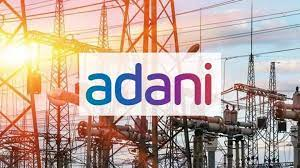Due to 737 MAX 9 issues, Boeing anticipates no “meaningful delays” in aircraft delivery to India
Due to ongoing issues following the recent mid-flight cabin plug door blowout incident on an Alaska Airlines 737 MAX 9 plane in the United States (US), Boeing does not anticipate any “meaningful delays” in its 737 MAX aircraft deliveries to India, Vice President for Commercial Marketing Darren Hulst of the American plane maker stated on Friday at Wings India 2024 in Hyderabad. Hulst went on to say that Boeing would concentrate on quality control inspections of its aircraft and assist the US probe.

The MAX 9 version of the aircraft, which had the plug door blowout, is not presently operated by any Indian carrier, nor do they have any intentions to do so. Many MAX 8 and MAX 10 aircraft are ordered by Indian airlines, including Aksa Air and the Air India group, and are scheduled to be delivered over the course of the next few years. The Air India group placed an order for 190 MAX family aircraft in 2023. Akasa Air added 150 more planes to its initial order of 76 on Thursday.
Hulst stressed that while he does not anticipate long-term delivery delays, Boeing is not prepared to sacrifice quality in order to meet the promised delivery date. The aircraft manufacturer has also included an additional level of quality control in its production processes. When questioned about the kind of talks Boeing has been having with current and prospective customers over their worries regarding the MAX family of aircraft, Hulst said that the company has a long-standing relationship with its customers and that it is in constant communication with them to resolve any issues.
Earlier this month, an Alaska Airlines 737 MAX 9 aircraft flying flight 1282 between Portland and Ontario, California, experienced a mid-air plug door blowout that resulted in a section of the fuselage breaking away, depressurizing the cabin, and leaving a door-sized hole in the fuselage at an altitude of approximately 16,000 feet. The aircraft was forced to make an emergency landing shortly after takeoff.
The US Federal Aviation Administration (FAA) grounded all MAX 9 aircraft in the country after the incident and said that a “rigorous inspection and maintenance” was required before determining whether to allow the aircraft to be flown again. The FAA said in a statement on Wednesday that “the safety of the flying public, not speed, will determine the timeline for returning these aircraft to service.” A number of foreign airlines using MAX 9 aircraft also grounded the aircraft in response to the event.
Joyous deal
The Directorate General of Civil Aviation (DGCA), India’s safety authority, has required a one-time check of the emergency exits on all of its MAX 8 aircraft, despite the country not having any MAX 9 aircraft in operation. Later, the regulator said that all inspections were completed properly and that no unfavorable results were found. The fleets of SpiceJet, Akasa Air, and Air India Express all have MAX 8 aircraft.
The recent incident involving Alaska Airlines has compounded Boeing’s problems with the 737 MAX series of aircraft, which has had a pretty rocky history. The 737 MAX series of aircraft, which Boeing introduced with much fanfare a few years ago, took a serious hit when two of them crashed in the six months between October 2018 and March 2019, forcing authorities worldwide to halt the aircraft.
Following many months of examinations, corrections, and testing, the European Aviation Safety Agency approved the 737 MAX in January 2021, and the Federal Aviation Administration authorized it in November 2020. Only in August 2021, after a protracted delay, did the DGCA finally grant the 737 MAX permission to fly, making India one of the last major aviation markets to do so.
Over the next several years, the 737 MAX aircraft began to acquire the confidence of airlines and aviation authorities worldwide; nonetheless, the aircraft’s manufacture encountered repeated setbacks because of issues with supplier components’ quality and standards.
The most recent Alaska Airlines incident occurred just a few days after Boeing requested that 737 MAX operators conduct checks after the discovery of a loose bolt in one of its aircraft’s rudder control systems.







